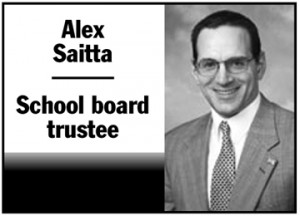A court case of interest
 I’m sure many are aware the U.S. Supreme Court is hearing a prayer case, The Town of Greece, N.Y., vs. Galloway.
I’m sure many are aware the U.S. Supreme Court is hearing a prayer case, The Town of Greece, N.Y., vs. Galloway.
There, the town council randomly selected clergy to open their meetings with a prayer. Susan Galloway objected to the prayers, which were mostly Christian. She argued by allowing that, the town supported one faith over others and violated the First Amendment. The town lost in the 2nd Federal Circuit Court and sued Galloway in the U.S. Supreme Court.
First, some history. The Establishment Clause is the first of several tenets in the First Amendment “Congress shall make no law respecting an establishment of religion. . . .” That is immediately followed by the Free Exercise Clause, “or prohibiting the free exercise thereof.”
Translation — the government or its agents can not favor one religion over another, nor can it prohibit private citizens from freely expressing their religious faith.
Marsh vs. Chambers is a 1983 U.S. Supreme Court case that ruled deliberative bodies such as the U.S. Congress, state legislatures and local councils and boards can start their meetings with a prayer, because such prayers have their root in First Congress of 1789.
The question in Greece v. Galloway is, must the government be hands-off those clergy prayers? This conservative viewpoint argues the Free Exercise Clause controls and the government can’t tell selected clergy (private citizens) how to pray and to whom.
Or does the government have the responsibility to sanitize the prayers of the clergy to insure they are non-sectarian and address God, Heavenly Father, Lord and not Jesus, Moses or Muhammad? From this liberal viewpoint, the Establishment Clause controls and the clergy (now seen as a temporary agent of government) can’t favor one religion over another.
The latter is how the 4th circuit ruled in Joyner v. Forsyth County, N.C. This is the reason the opening prayers of government bodies in the 4th circuit (South Carolina and other states in the mid-eastern part of the U.S.) must be non-sectarian.
Greece v. Galloway exhibits a gargantuan collision between the Establishment Clause and the Free Exercise Clause. Listening to the oral arguments and reading the transcript, I believe the Court will rule the Free Exercise Clause controls, and the Town of Greece will prevail.
Time and again the justices were hung up on the issue of the government inviting in a private citizen (the clergy) to give the opening prayer, and then reaching over his back and telling him how to pray and to whom.
From Justice Roberts: Is there supposed to be an officer of the town council that will review (the prayers)? Do prayers have to be reviewed for his approval in advance?
Justice Kennedy: Well, so in other words the government is now editing the content of prayers… It just seems to me that enforcing that standard… involves the State very heavily in the censorship and the approval or disapproval of prayers… I mean, I›m serious about this. This involves government very heavily in religion.
Justice Breyer: Congress has a set of (prayer) guidelines… Are those satisfactory to you (asking Galloway’s attorney)… If those are satisfactory to you, then I wonder, are they satisfactory to everyone? And you will find all kinds of different beliefs and thoughts in this country, and there will be people who say, but I cannot give such a prayer if I am a priest or minister or whatever in that particular religion. I must refer to the God as I know that God by name…
Justice Sotomayor: Assuming you hear the resistance of some members of the Court to sitting as arbiters of what›s sectarian and nonsectarian, and I join some skepticism as to knowing exactly where to draw that line…
Until January 2013, the Pickens County School Board asked a student to start each board meeting with a prayer of their choice. After studying the case law and getting advice from the state Attorney General, two prayer attorneys and Christian groups like the American Center for Law and Justice, the board majority and the administration realized that was illegal. That will remain illegal after this verdict. Students being asked to pray by government officials was struck down by the Supreme Court in 1962, and that is not the issue in Greece v. Galloway.
Now at each school board meeting, students no longer give the prayer. In line with 4th circuit ruling, a board trustee opens the meeting with a non-sectarian prayer just like the state legislature and county council.
If the Court comes down on the side of Greece, N.Y., the ruling will change the prayer landscape at government meetings nationwide. It would reverse the 2nd and 4th circuit requirements such prayers be non-sectarian. Board, councils and state legislatures will then have to decide if they want to adopt the method of or similar to the Town of Greece.
The Supreme Court will hand down its verdict before June 2014.
Alex Saitta is vice-chairman of the School District of Pickens County’s board of trustees.



























